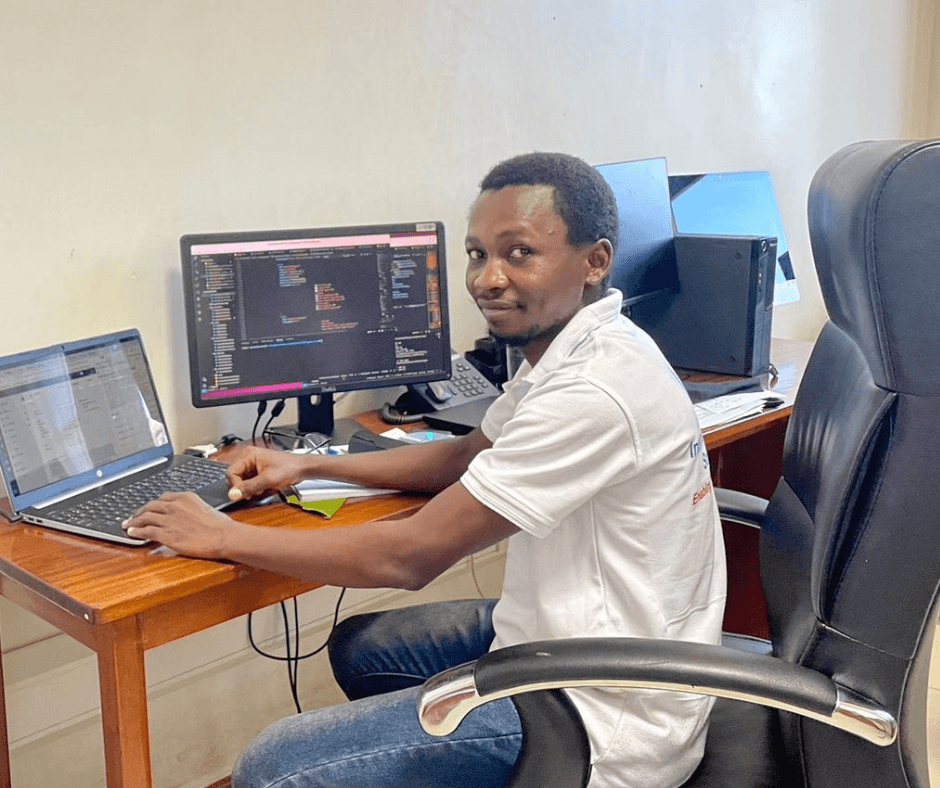In the fast-paced digital economy, digital skills and education play a crucial role in driving digital transformation within the Partner States of the East African Community. While initiatives to enhance digital literacy across the region exist, there are still gaps in terms of the availability and accessibility of high-quality digital education and training programs, especially when compared to more advanced economies.
Addressing the lack of digital skills requires a multi-faceted approach that includes investments in digital infrastructure, promoting digital literacy and training opportunities, and fostering collaboration between governments, educational institutions, and private sector organizations.
The Centre of Excellence for ICT in East Africa (CENIT@EA), a joint initiative of the EAC and German Development Cooperation, are empowering both young women and men to develop their digital skills and bridge the significant digital gaps present in the region. Thereby, this initiative is contributing to unlocking the potential of the digital economy and drive inclusive growth and development in the EAC.
Desire Asiimwe, a second-year student pursuing the Master of Science in Embedded and Mobile Systems (MSc EMoS) at CENIT@EA, expresses gratitude and acknowledges the privilege of being awarded a two-years scholarship that is bound to transform her life upon completion. Desire intends to venture into self-employment once she completes the course.
Desire states, "The MSc EMoS curriculum is truly unique, and I believe it is the first of its kind in the region. In addition to academic rigour, the curriculum provides a comprehensive learning experience. It incorporates hands-on training, exposure to real-world scenarios, mentorship, and the development of essential soft skills that are crucial in today's employment landscape. We have the opportunity to attend summer schools, engage in guest lectures, and participate in exchange programs – it opens up a world of exposure."
Carmel Nkeshimana, another scholarship beneficiary from Burundi, shares similar sentiments as Desire. It took him two years to seize the scholarship opportunity that led him from Burundi to Arusha. For him, it was a challenging yet worthwhile journey.
"To join CENIT@EA has been one of my best decisions. I truly appreciate the curriculum. Even before completing the programme, I share my learnings with other young people back home. I find fulfilment in contributing to the digitalisation of my country and the region at large," notes Carmel. He aspires to pursue a career in academia as teaching is his passion. On a lighter note, Carmel also highlights that his time in Arusha has provided him with valuable regional networks and a mastery of the English language.
This is precisely what CENIT@EA, and its training programmes aim to accomplish. By building the capacity of young individuals, the initiative enables them to actively participate in their country's digital transformation and fosters a network of digital experts within the region. Currently, both Carmel and Desire are undertaking work placements at the Inter-University Council of East Africa (IUCEA) in Kampala. Desire is working on a digital solution to enhance the monitoring and evaluation of Africa's Centres of Excellence, while Carmel is developing a data-driven approach for the automatic accreditation process at IUCEA. These examples demonstrate the collaboration between students, academia, private and public sector to ensure that innovations are not left on the shelf.
Desire and Carmel represent just two of the many beneficiaries who have received over 112 scholarships awarded to young ICT professionals studying at CENIT@EA, located at the Nelson Mandela Africa Institution of Science and Technology (NM-AIST) in Arusha.
In addition to the scholarships, the centre offers training programs for unemployed graduates and the business community, equipping them with the necessary digital skills to fully participate in the regional digital economy. Furthermore, the centre provides training to university lecturers and staff, enhancing the quality and learning of digital skills at higher institution of learning.
CENIT@EA is part of the dSkills@EA project, an initiative of the EAC and German Development Cooperation funded by the German Federal Ministry for Economic Cooperation and Development (BMZ) and implemented by the GIZ. The objective of the project is to ensure employment and innovation related digital skills of young people in the EAC partner states are strengthened.
For ICT professionals in East Africa looking to enrol for the MSc EMoS, the call for applications is open. Visit www.cenit-ea.org for more information. Limited scholarships are available.
Title photo: ©EAC-GIZ_Roshni Lodhia

